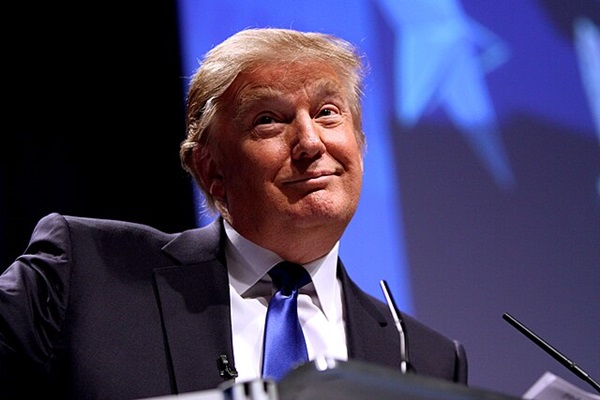.png)
By Guy Standing
Guy Standing is author of The Blue Commons: Rescuing the Economy of the Sea (Pelican, 2023).
October 16, 2025 at 4:44 AM IST
One of US President Donald Trump’s most globally consequential executive orders has received hardly any attention. Earlier this year, Trumpunilaterally gave US-listed corporations the right to violate international law on the high seas, not only undercutting a system that America helped create, but also increasing the likelihood of military conflict in the coming years.
Specifically, Trump has given companies the go-ahead to start deep-sea mining beyond the United States’ Exclusive Economic Zone (EEZ). Doing so is a direct violation of the United Nations Convention on the Law of the Sea (UNCLOS), a set of compromises that were painfully negotiated between 1958 and 1982. With the express purpose of preventing wars over ocean resources, UNCLOS established the “Area,” categorising 54% of the world’s oceans as “the common heritage of mankind.” It was, as then-UN Secretary-General Javier Pérez de Cuéllar put it, “Possibly the most significant legal instrument of the century.”
While the sea and the seabed traditionally had been regarded as a global commons, UNCLOS granted all coastal states EEZs extending 200 nautical miles off their shorelines. This was easily the biggest enclosure in history, transferring 138 million square kilometers or 53.3 million square miles to national ownership. Moreover, because of their numerous islands, the US and France benefited the most from this arbitrary formula, each gaining over 11 million sq km. China, by contrast, ended up with a mere 960,000 sq km.
The US also did very well in other respects. It gained the right to navigation in all countries’ waters beyond a 12-mile coastal limit and, along with other rich countries, secured access to developing countries’ fishing grounds. Taking the lead in negotiating on behalf of the G77, China accepted these terms in exchange for the one compromise made by the US: a promise not to start deep-sea mining in the “Area” until countries had agreed on a mining code to establish environmental safeguards and a benefit-sharing mechanism. Such a mechanism is necessary to ensure that all countries, including the 44 that are landlocked, receive an equitable share of the benefits from exploiting the “common heritage of mankind.”
The code was to be negotiated within the International Seabed Authority, though progress has been slow, partly because the US and other rich countries cynically insisted that any agreement reflect a consensus, not just majority support. Nonetheless, the ISA is aiming to complete the code in the coming months, even as the US makes clear that it will not feel bound to abide by anything that is agreed.
Ironically, while 167 countries and the European Union have ratified UNCLOS, the US has refused to do so, even though it has gained enormously from the convention. Until Trump returned in January, it had agreed to abide by UNCLOS’s rules, as is customary in international law. It also has taken full advantage of those rules. In 2023, for example, it used Article 76 to add areas deemed to belong to its “extended continental shelf” to its EEZ. As a result, the US now claims 680 miles off its Pacific coast and 350 miles off its Atlantic coast, vastly more than any other country. Its effective EEZ now consists of 12.4 million sq km, three million more than its total land area.
Thus, not content with the biggest-ever enclosure of a global commons, and after ravaging developing countries’ fishing grounds for more than four decades, the US is reneging on the one commitment it made in return for those benefits.
To be sure, major publications like the The Economist have expressed support for Trump’s order, neglecting to mention that UNCLOS was a negotiated bargain in which rich countries gained considerable advantages in exchange for a commitment to share the benefits equitably if deep-sea mining went ahead. Since that was a legally binding commitment, arguing that the US is “right” to go ahead is effectively saying it is right to break international law.
As if flouting international law and past commitments were not bad enough, Trump is also setting in motion potential environmental and geopolitical disasters. Marine scientists overwhelmingly warn that deep-sea mining could cause severe ecological harm, destroying biodiversity, harming vital fish populations, and damaging the ocean’s capacity to function as the world’s main carbon sink. While the ISA requires companies with a mining exploration license to conduct environmental impact assessments, the Trump administration obviously will do nothing of the kind.
The geopolitical risks are no less worrying. If the US reneges on the sole concession it made, why should other countries abide by the many they have made? China, in particular, will be forced to respond. It already possesses five of the 31 exploratory licenses granted by the ISA, and it has the technological capacity to scale up mining. It will not risk letting the US simply lay claim to vast swaths of the seabed and its vast resources.
The first flash point will be the Clarion-Clipperton Zone, a six million sq km area in the Pacific with billions of tons of polymetallic nodules containing nickel, cobalt, and other valuable minerals at a depth of up to 4,000 meters. Unless rescinded, Trump’s violation of UNCLOS will almost certainly unleash a lawless gold rush there and elsewhere, not least the (melting) Arctic. The scope for armed conflict is obvious.
Trump’s executive order is reckless in the extreme. The international community should collectively demand that it be rescinded, and the ISA should not rush to set a mining code that does not respect the objectives of UNCLOS.
Sadly, we can no longer be confident that US leaders will heed the wisdom of their predecessors. In 1966, President Lyndon B. Johnson understood that. “Under no circumstances … must we ever allow the prospects of rich harvests and mineral wealth to create a new form of colonial competition among the maritime nations. We must be careful to avoid a race to grab and to hold the lands under the high seas. We must ensure that the deep seas and the ocean bottoms are, and remain, the legacy of all human beings,” he had then said.
Trump disagrees. For the sake of humanity, nature, and global peace, the rest of us must call attention to the dangerous cycle he has triggered.
© Project Syndicate 1995–2025




